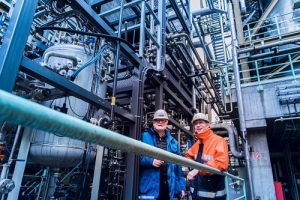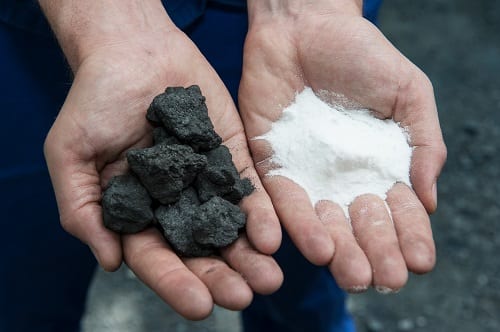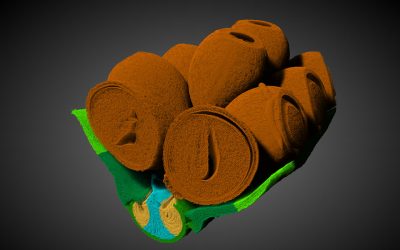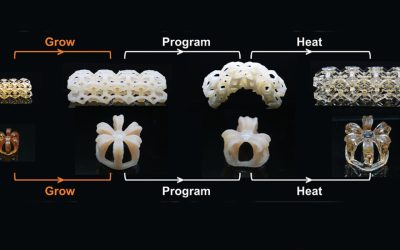
ThyssenKrupp and TU Berlin installed a pilot plant to convert process gases into ammonium bicarbonate. Source: ThyssenKrupp
A pilot plant installed on the works site of ThyssenKrupp Steel Europe in Duisburg, Germany, produces ammonium bicarbonate that can actually be used as baking powder. But the idea behind the project is not to enter the food industry; the main aim of the pilot plant is to convert process gases generated during the production of coke into marketable materials such as fertilizers and chemical propellants. The plant is the first of its kind worldwide and uses a completely new technology developed in a collaborative project by the Schwelgern coke plant (KBS), plant engineering company ThyssenKrupp Industrial Solutions and Berlin Technical University (TU Berlin).
“For this we have developed and patented a process that converts coke oven gases into valuable materials in an eco-friendly way. We can market this process worldwide and also retrofit it in existing plants”, explains Dr. Holger Thielert from ThyssenKrupp Industrial Solutions.
The new process starts with the production of coke, alongside iron ore the most important charge material for producing pig iron in the blast furnace. Coal is ‘baked’ at high temperatures in the coke plant. The hot gases generated by this process contain a number of substances. “The pilot plant uses a complex process to scrub the coke oven gas. Adding carbon dioxide produces ammonium bicarbonate,” says Thielert.
Following successful tests in the laboratory, researchers from TU Berlin were tasked with building the pilot plant in Duisburg. “The key tests can only be carried out under real conditions,” explains responsible scientist Sebastian Riethof from TU Berlin.
Initial results have been promising: “We are able to utilize 95 % of the ammonia contained in the coke oven gas. Every hour the process produces 15 kg of solid materials from 15 m³ of coke oven gas and 2 m³ of carbon dioxide,” says Riethof. With this level of efficiency, the chemical products can be manufactured at competitive costs.

















